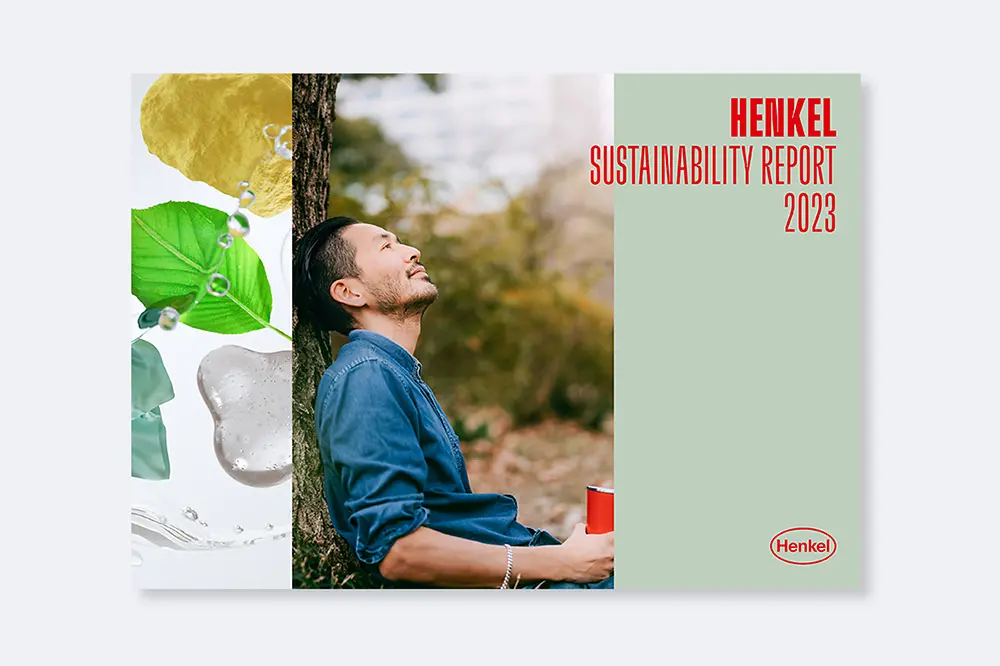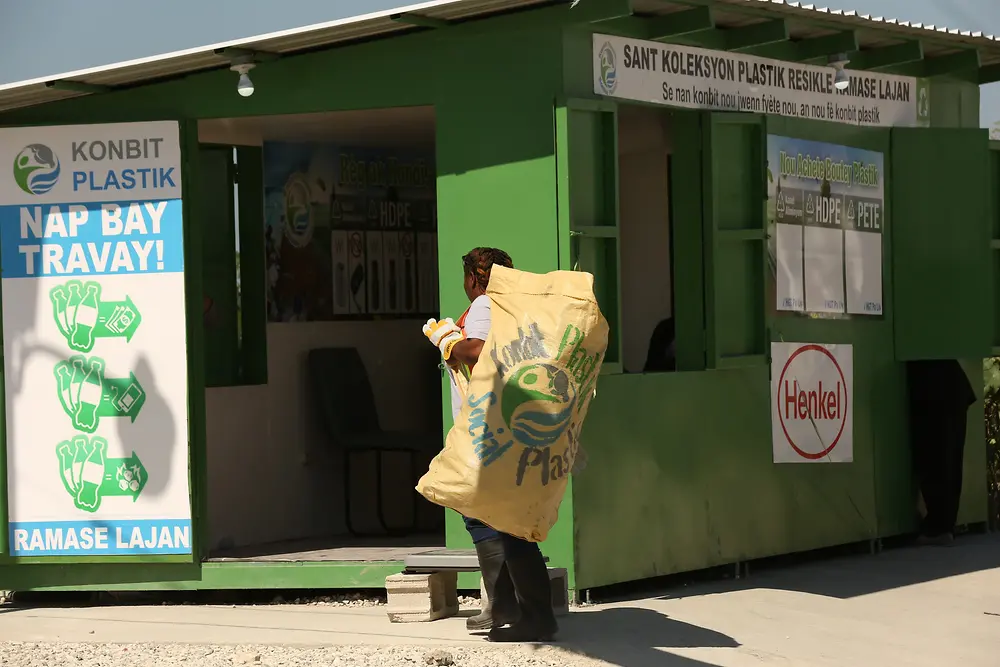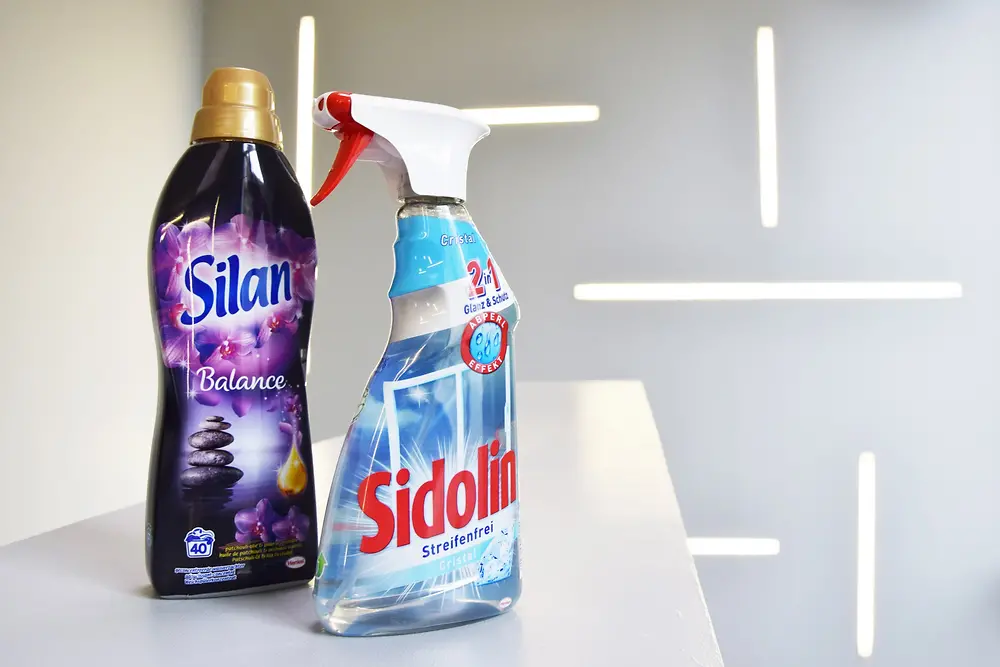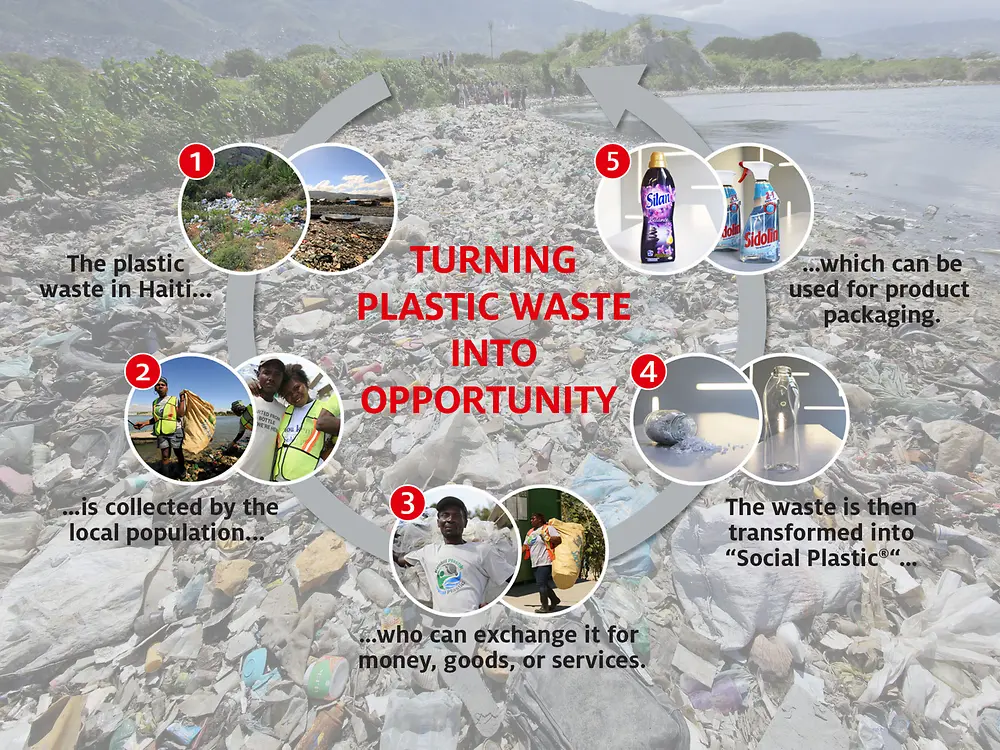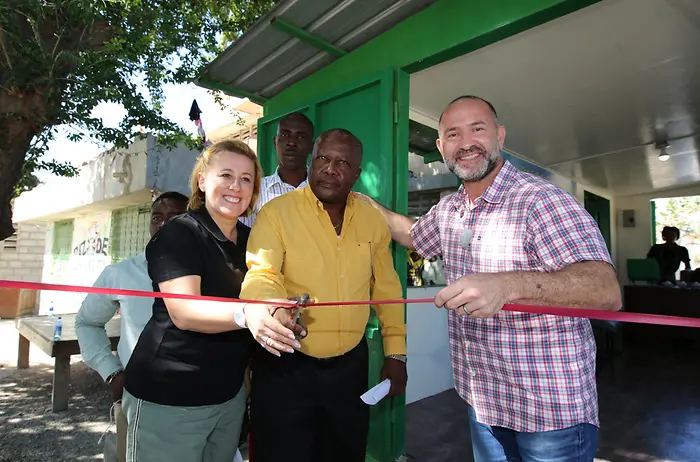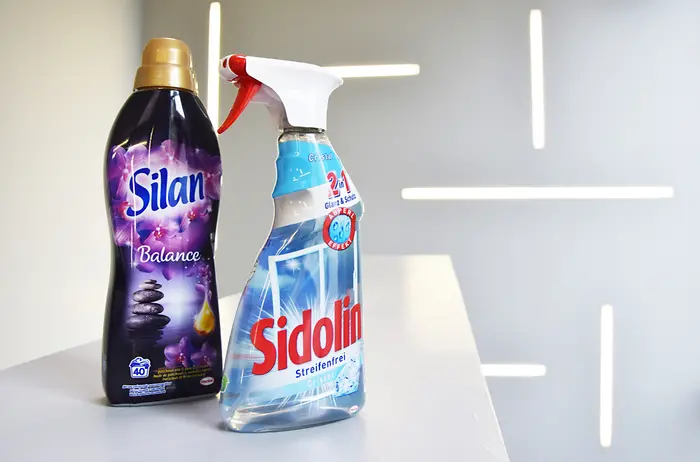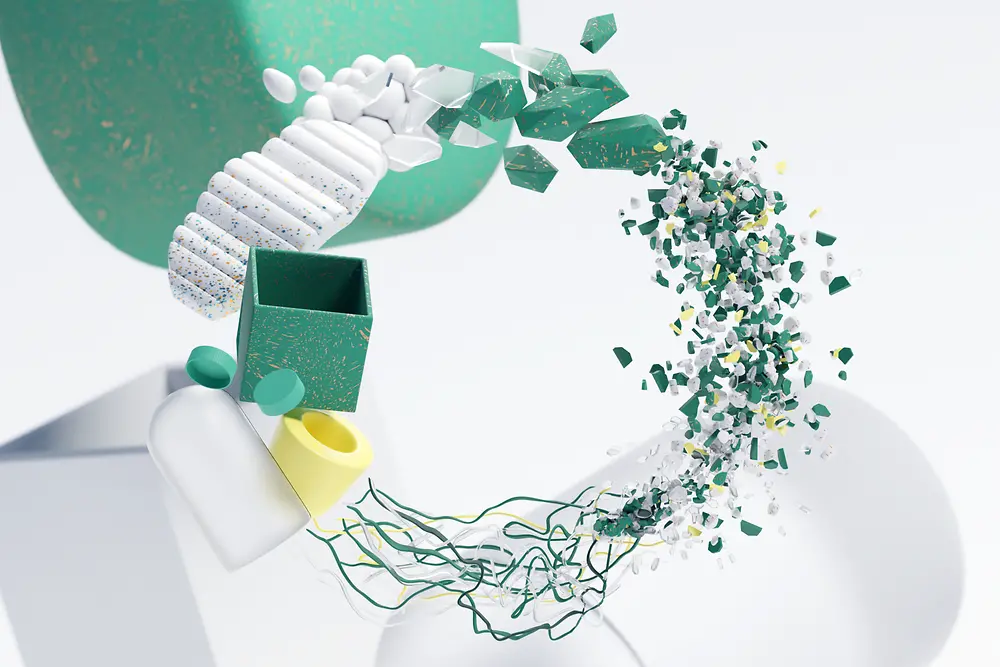Discover the brands and technologies from our business units Adhesive Technologies and Consumer Brands.
Nov 15, 2018 Düsseldorf / Germany
One year of successful partnership with Plastic Bank
One year ago, Henkel entered into a partnership with the social enterprise Plastic Bank, as the first global fast-moving consumer goods company. Since then, Henkel and Plastic Bank have made considerable progress: More than 35 tons of plastic have been collected in three newly built plastic collection centers in Haiti. Additionally, Henkel included “Social Plastic” in its packaging for the first time.
“Plastic Bank creates a value chain that contributes to a better world. Our partnership with Henkel is a good example of what can be achieved by joining forces,” said David Katz, CEO of Plastic Bank. “Together we can create true added value by tackling the waste problem in a holistic approach while at the same time helping the world's poorest people.”
Plastic Bank was founded in 2013. The social enterprise has set itself the goal to reduce waste in the oceans and waterways while improving the lives of people in poverty – especially in countries that lack waste management infrastructure. This is how it works: the local population can return collected plastic waste in the collection centers and exchange it for money, goods, or services. As part of the partnership with Henkel, three new plastic collection centers were opened in Haiti, one of the poorest countries in the world. The amount of plastic collected so far – more than 35 tons – corresponds to more than 1.2 million drinking bottles.
“Social Plastic” in Henkel product packaging
The plastic waste is sorted and processed, and then integrated into recycling value chains as “Social Plastic”, which can be used for product packaging. The first Henkel product packaging with Social Plastic was launched in October – it was used in 25,000 bottles for laundry and cleaning products. Henkel's Beauty Care business has also conducted successful pilot tests with Social Plastic. For 2019, both business units have planned to expand the use of Social Plastic in certain product lines – in total, this will be the largest industrial production run of Social Plastic to date. In addition, the opening of new collection centers is planned to further increase the availability of Social Plastic – while helping more people in poverty.
Partnerships along the value chain
As part of its new packaging strategy Henkel has set itself ambitious targets to promote sustainable development towards a circular economy. By 2025, 100 percent of the company’s packaging will be recyclable, reusable or compostable*. To achieve this, the company cooperates with strong partners from various industries and along the entire value chain. In addition to its cooperation with Plastic Bank, Henkel participates, for example, in the “New Plastics Economy” initiative of the Ellen MacArthur Foundation.
Further information on Henkel’s strategic framework for sustainable packaging can be found at www.henkel.com/sustainability/positions/packaging.
*excluding adhesive products where residue may affect recyclability
